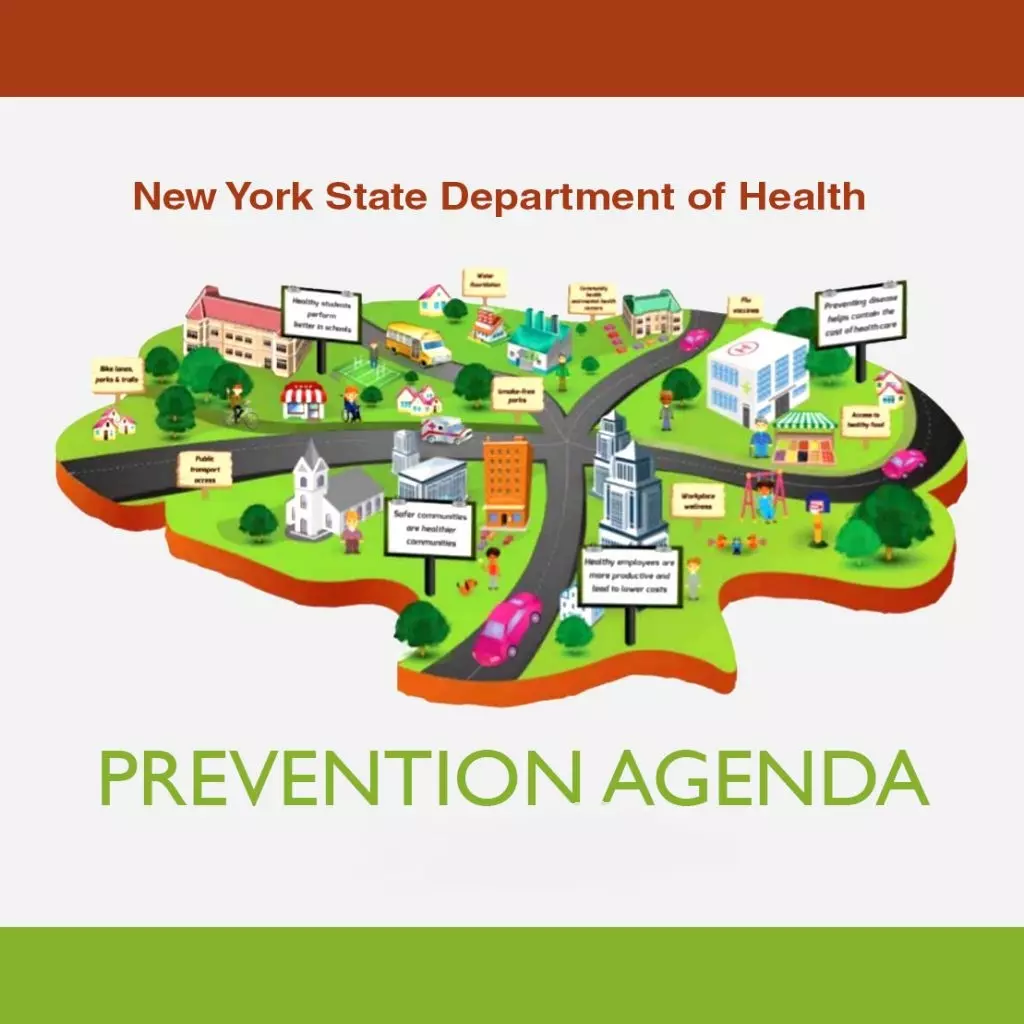NYSACHO News
Call for Exhibitors! Early Intervention & Children and Youth with Special Health Care Needs Summit
REQUEST FOR PROPOSAL FOR GENERAL COUNSEL / LEGAL SERVICES
Call for Exhibitors! NYSACHO’s 2024 Statewide Harm Reduction Symposium
Press Releases
NYSACHO AND NYSDOH JOIN TO COMMEMORATE NATIONAL PUBLIC HEALTH WEEK WITH GRANTS TO 10 COUNTY HEALTH DEPARTMENTS TO AID EFFORTS IN COMBATTING CLIMATE CHANGE
NYSACHO PRESIDENT DR. IRINA GELMAN TESTIFIES ON NYSACHO’S 2024-25 STATE BUDGET PUBLIC HEALTH PRIORITIES
The Prevention Agenda 2019-2024
is the blueprint for state and local action to improve the health and well-being of all New Yorkers and to promote health equity in all populations who experience disparities. New to this 2019-2024 cycle is the incorporation of a Health Across All Policies approach, initiated in 2017, which calls on all State agencies to identify and strengthen the ways that their policies and programs can have a positive impact on health. It embraces Healthy Aging to support New York's commitment as the first age-friendly state.










